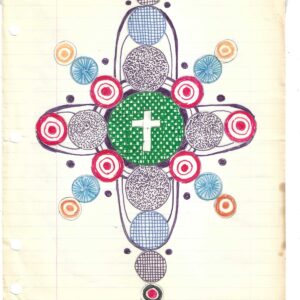Any time I hear of a new book by the former Archbishop of Canterbury, Rowan Williams, I jump at the chance to read it.
And jump I did when I heard that Slant Books had recently published a collection of his plays—called Shakeshafte & Other Plays.
Wait a minute! Williams is a world-renowned Anglican pastor and theologian, as well as a fine literary critic and poet. What’s he doing writing plays? Maybe I’m jumping too soon. Maybe I should take a pass on this one, maybe I should hold back, show some judicious caution.
On the other hand, though…maybe writing plays is what I should have expected Williams to try his hand at sooner or later. I should have expected it because of the fundamentally dramatic character of his writing, even of his expository theological writing. I mean “dramatic” in the sense of his always engaging us, his readers, pastorally rather than magisterially—that is, of his never speaking to us from an exalted, abstracted position of authority, but face-to-face in a mutually unfolding understanding of faith as a living experience for both writer and readers, there on the page.
So while on the one hand I felt some surprise that among Williams’s many other accomplishments he was now emerging as a playwright, on the other I wasn’t surprised at all. A writer so deeply gifted with a sense of the dramatic nature of his relation to his readers would perhaps sooner or later be drawn to a form where the drama would become literal.
But how would a Christian theologian conceive of such a drama? What would his or her literary models be? Christian pageants? Biblical reenactments? Historical dramas?
None of these, it turns out—or at least not directly.
What really engages Williams in the three short plays included in Shakeshafte & Other Plays is the costly dynamic of artistic expression—a cost paid dearly by the artists represented in those three plays: by Shakespeare (in the first of the plays, Shakeshafte), by David Jones (in the second, The Flat Roof of the World), and by Jesus (in the third, Lazarus). One of the three speakers in Lazarus suggests how high that cost can be emotionally by echoing the words in John 22:35 reporting Jesus’ reaction as he approaches Lazarus’s tomb: “Jesus wept.” The raising of Lazarus follows immediately in the Gospel narrative. In Williams’s Lazarus, it is Jesus’ greatest sign, his greatest expression—and brings him into his greatest peril, for the plot to kill him is the immediate consequence.
Tellingly, Williams places Lazarus last among the three plays. In that position, it serves as a reflection on the two plays that come before, rather than as a template for reading them. For Williams, Jesus’ raising of Lazarus is not meant as a “Christianizing” of all creative activity but as a way of modeling Christianity’s most accessible way of understanding this activity. Jesus does not dominate human creative power. He brings it to fruition. But Williams doesn’t invite us to come to such a conclusion until we’ve seen how creative power emerges in the lives of Shakespeare and of artist-poet David Jones. In both instances, it emerges out of mortal peril, either anticipated or remembered.
Shakeshafte first, where the peril is anticipated. In this instance, Williams has to imagine the peril, since so little about Shakespeare’s life is known. But there is a possibility, which Williams documents in his foreword, that the young Shakespeare could have avoided Queen Elizabeth’s persecution of alleged and real Catholics by taking a tutoring job in the country. It is in that temporary safe haven that Williams’s Shakespeare meets Edmund Campion. Campion, a scholar and recent convert to Roman Catholicism and now a Jesuit priest, has risked his life to return to England to minister to those still adhering to the “old faith.” (He is soon captured by Queen Elizabeth’s agents, and—history records—brutally martyred.)
In their secret conversation, Williams has Campion assert to young Will that not all voices should be heard. “Leave them,” Campion advises the young Shakespeare, “don’t seek them out. They’ll soften your heart in all the wrong ways and you’ll forget there’s a truth at all.”
Will answers:
But what if they’re—shut out of the harmony because no-one’s let them be heard? What if the only way to…this harmony you talk about is like letting God bring it about when every human spirit has its voice.
Shakeshafte hinges on the commitment young Will makes here: to let all the voices within him and others speak, whether the voice is “wrong” or not. Creative activity must play no favorites. Like God, it must allow “every human spirit…its voice.” Despite the peril of speaking fully and truly in a world of spies and torture, Shakespeare (like Campion) persists in voicing his own understanding of “truth.”
In the book’s second play, The Flat Roof of the World, the peril is remembered. David Jones—author of In Parenthesis, one of the greatest artistic works to come out of World War I—is trying to put the pieces of his life back together after his experience in the trenches of Mametz. In Williams’s imagining of Jones’s conversation with Valerie, a young woman whom Jones befriended in middle age, Jones describes the day his world literally blew apart:
July 1916. Up before it’s light, before the mist starts burning off. Orders to advance up the hill in open formation, wide open to the German guns. No cover.
They promised a smokescreen but it never happened.
You can’t hear anything, sounds odd, bloody great explosions going off all the bloody time, but there, inside the fog, walking forward as if you were on cushions, walking on air, walking on the flat roof of the world.…
How to give voice to the truth of the chaos within and without him? How to separate life from the wreckage? How to walk again on that “flat roof of the world” and this time not fall through?
By honoring every bit of it, letting no part of it be lost before it is transformed by art.
Or as David Jones says, in words that recall Shakespeare’s reply to Edmund Campion:
You look at something and then you see something else showing through or creeping in at the edge; you get one thing down and it shouts out for another.… No reason to finish, really. It’s supposed to be, well, um, it’s the, you know, it’s the Annunciation, Mary and the angel Gabriel, only you see, all around the edge?
This mystery of creative power is perhaps best expressed in the book’s final play, in the halting words of an unidentified voice speaking during the thunderstorm that follows Lazarus’s raising:
The rain strips the world away and what’s left is the rock. When he…when he wept, something, I don’t know, something stripped the covers away and what’s left is the life. Whatever’s alive underneath it all. And you stand there with the darkness pouring over you, and he says, I’m what’s left. You may go away, I won’t. The water keeps on coming.
Whatever else creative power is, it is apocalyptic: it’s a flooding, a washing, a rinsing, a cleansing so vast and deep that the world is laid bare, purified, revealed. All that is dead is washed away. All that lives remains.
Williams might seem to suggest, by connecting Shakespeare, Jones, and Jesus through their perilous commitment to giving life to what has been hidden, broken, or has died altogether, that there is an equivalence among their respective achievements. Not so. Williams the theologian has taught us otherwise: Jesus was and is one with us not only in our suffering but also in our greatest artistry.
After getting his PhD in English literature, George Dardess taught close reading to his own students until his retirement. Since then he has been ordained a Deacon in the Roman Catholic Church and written several books on Muslim-Christian relations. He has also created the graphic novel Foreign Exchange.





